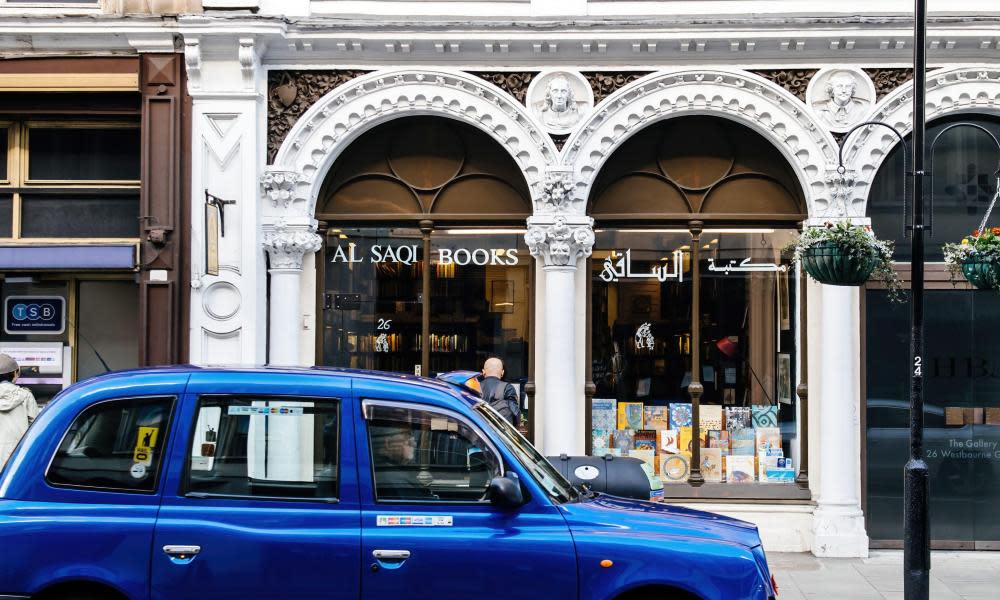Europe’s largest Middle Eastern bookseller to close

Europe’s largest specialist bookseller for Middle Eastern books, based in London, has been forced to close because of the hike in prices of Arabic-language books and because Brexit has been “detrimental” to its business.
Al Saqi Books in Bayswater opened in 1978, and sells books on the Middle East and north Africa in English, and on all subjects in Arabic.
Its recent top selling titles, according to its website, included the cookbook Bread and Salt by Asmahan Barwani, in Kurdish and English, and Classical Poems by Arab Women, a bilingual book in English and Arabic.
Related: Book prices set to rise as production costs soar, say UK publishers
The shop will shut on 31 December this year, with bookshop director Salwa Gaspard saying it was a “difficult decision that had to be made because of recent economic challenges, such as the sharp increases in Arabic-language book prices”.
Al Saqi Books was founded by Andre and Salwa Gaspard and the late Mai Ghoussoub, three friends who had settled in London from war-torn Lebanon.
The shop, said a statement about its closure, was a “leading light not only for Middle Eastern expatriates, but for visitors from across the region keen to obtain works banned in their own countries”.
Gaspard said the bookshop used to source and buy its stock from Lebanon, “but the economic situation there has made this all but impossible”, as book prices in the country has increased dramatically.
“Publishers have had to raise them to stay in business, as paper and shipping have effectively doubled in cost,” she said. “Another factor is the exchange rate, which is no longer favourable to us – we used to pay in US dollars. Then, of course, there is the rise in the [UK] cost of living. The costs associated with operating the bookshop have become too high.”
Gaspard said there had also been a drop in sales, partly because of Brexit. “We used to sell many books to the EU, which is no longer feasible because of duties and such,” she continued. “Arabic libraries in the UK – another important part of our business – are buying far fewer books. And we have lost a large part of our customer base as Arab visitors from overseas are not visiting in the same numbers. There is a generational issue there, as well: younger people do not stop by as often as their parents did.”
The UK publishing industry as a whole has been concerned about book prices this year, as a hike in paper costs and energy and the effects of Brexit mean it is facing rising financial pressure.
Independent publishers told the Guardian earlier this year that book prices will probably go up, even though they are trying to mitigate this by using cheaper and thinner paper, postponing reprints for older books and publishing fewer titles to reduce costs and avoid increasing recommended retail prices.
Bookshops have also seen an increase in prices of hardback fiction, which used to typically retail for between £15 and £20. Trade magazine the Bookseller reported that hardbacks are now increasingly being sold with a recommended retail price of between £22 and £25, with independent bookshops unable to compete with larger retailers who can afford to discount.
Although Al Saqi Books is closing, its publishing arms Saqi Books and Dar al Saqi will remain open, operating from new premises in west London.

 Yahoo Movies
Yahoo Movies 
